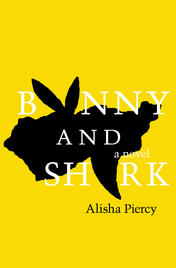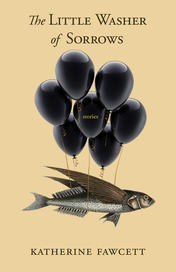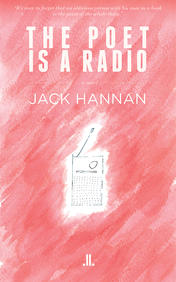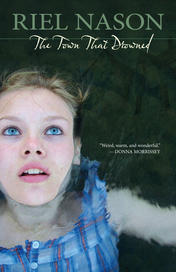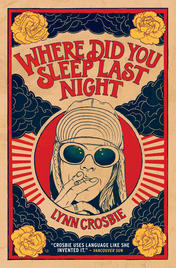Magical Realism
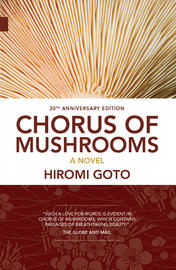
We lie in bed, listen to the click of blinds, watch a thin thread of dusty cobweb weave back and forth, back and forth, in the waves of air we cannot see. The blankets and sheet are a heap at the foot of the bed, and we are warm only where skin is touching skin. My shoulder, my arm, the swell of my hip. The curve of my thigh. Lean lightly into you. My fingertips are icy, but I am too comfortable to move. To bother getting up and arrange the blankets. I only want to savour the quiet of skin on skin. The murmur of our blood beneath our surface touch. Our breathing unconsciously falls into a pattern, follows the movement of the strand of cobweb that weaves above our heads. You lift your hand to rest its weight, the palm rough, just beneath my breast.
“Will you tell me a story?” you ask. Eyes on the strand of dust.
“Yes.”
“Will you tell me a story about your Obāchan?”
“Yes,” I close my eyes and breathe deeply. Slowly.
“Will you tell me a true story?” you ask, with unconscious longing.
“A lot of people ask that. Have you ever noticed?” I roll onto my side. Prop my elbow and rest my chin, my cheek, into the curve of my hand. “It’s like people want to hear a story, and then, after they’re done with it, they can stick the story back to where it came from. You know?”
“Not really,” you say, and slide a little lower, so that your head is nestled beneath my chin. Your face in my neck. “But will you still tell me?”
“Sure, but bear with my language, won’t you? My Japanese isn’t as good as my English, and you might not get everything I say. But that doesn’t mean the story’s not there to understand. Wakatte kureru kashira? Can you listen before you hear?”
“Trust me,” you say.
I pause. Take a deep breath, then spiral into sound.
“Here’s a true story.”
Mukāshi, mukāshi, ōmukashi …
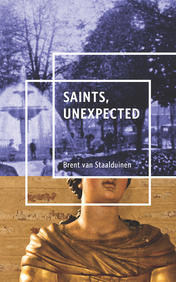
We left the front door open. We never left it open.
Leich and I opened Second Chances, my mother’s thrift store, like we usually did, with a quick sweep and dust, and the counting of the day’s float. It was a Monday, so the cash register held only fifty dollars. There was little reason to keep more on hand. If you did business in downtown Hamilton, you learned about slow Monday mornings. Our store opened at eight to catch a few of the business folk before work, but the shelters and halfway houses, which supplied much of the foot traffic in our neighbourhood, didn’t start kicking people out until after eleven. My mother, Anne, said she set up the hours that way to catch the first wave of white collars, the keen ones who get downtown early for the free parking spots on the east side. But it was a bit of a dream, really, trying to entice bleary worker drones as they trudged towards huddled office buildings with what she called “pre-chanced” things.
There was a heavy clunk from the storeroom as Leich—think “like” when you say it—opened the safe. The door always thunked against the drywall partition between the storefront and the back room. We told Mom that we should move the safe to save the wall, but she never did. So the drywall crumbled, like drywall always seems to do.
— Hey, Mutts, did you get to the bank on Friday?
— No, I said.
— We’re almost out of loonies.
— Mom said we’d be fine.
— She’s not the one running out of change in the middle of the day.
— We’re not in the middle of the jungle.
— Says you.
I rolled my eyes, took the window cleaner and a cloth from behind the till, and walked to the front door. Through the fingerprints and smudges, the morning traffic on King Street had begun to build. I opened the door and sprayed the outside glass, dissolving the weekend grime. How dirty the main display windows were; we had hired someone to clean them on Sunday nights, but it looked as though he had decided to take the weekend off. I knew Mom would be pissed about that. Leich came to the front and rattled the cash drawer into the old register, slamming it twice before it caught. He turned the register key and the machine whirred and clicked to life.
— It’s a good one today, he said, stepping out onto the sidewalk beside me.
— Yeah, you can’t even smell the mills.
— No, dummy, I meant this.
He handed over the Niche’s offering for the day, a hinged silver box the size of a deck of cards. Although it was tarnished, it was heavy and lined with purple silk, which gave it a regal air, and was covered in ornate designs.
— Nice, I said. Especially the—
Although I knew that the silver and silk were real—the Niche’s offerings always were—the proper term for the designs escaped me. Reliefs? Embossings? Carvings? Engravings? I frowned, annoyed at myself, the writer, for questioning the word.
Leich didn’t notice. He stretched and breathed.
— You weren’t kidding, he said. It smells great.
— Can’t remember the last time the sky was so blue, either.
— Such a romantic. You must have to fight them off. I punched him on the arm.
Our city was still a steel town in those days. The two mills, north and east of the downtown, ran three shifts, and we knew when the wind changed. The fumes spewed from the smelters and burn offs were the worst in the summer, when the heat and humidity kept the smog low to the ground, wreathing the downtown in the smell of overheated brake pads. The city had mourned the loss of jobs when one of the mills closed down a few years earlier, then rejoiced when it opened again under different ownership. A foreign corporation promised change and profits and renewal. The endless cycle of boom and bust. Regardless, nothing helped with the smell. Probably the pollution, too, but there was an almost mythical belief in the city that Hamiltonians had stronger lungs than anyone.
I suggested we leave the door open to air things out a bit. As the slightest breath of westerly wind blew down the sidewalk, fresh and clear, Leich hesitated for an instant, then nodded.
You didn’t leave your door open on King Street. We had all sorts of community action groups trumpeting the successes of their efforts towards urban renewal, with progress and money creeping east, but our stretch of King hadn’t changed much. Then—I don’t know about now, as I haven’t been back for more than twenty years—much of the visible population was every shade of poor, from the destitute to the barely scraping by. There were a number of shelters, soup kitchens, and missions in our neighbourhood, so addicts and homeless people wandered around everyone else in a parade of need. We closed our doors against them hoping, along with every other small business, that the real buyers knew enough—were confident enough—to come inside.
Still, we could deal with the wandering and homeless. All it took was a request to leave and they would, or a nudge on the shoulder to rouse them from their stupor. Rarely, we might have had to call the police, or the hotlines for one of the city services if a drunk had a rehab card pinned to his coat. If found, and I can’t answer, call the Shepherds of Immaculate Hope at 906-767-8724. Thank you kindly! I had lots of stories like that. In fact, the best stories in my journal came from dealing with our city’s most needy people, stories I hoped to make use of someday. When I got back to writing, that was.
Leich grabbed the box and began buffing it with the hem of his T-shirt.
— I’ll put it somewhere, he said.
— I know where it’s going.
— You do, eh?
— You have no imagination. Predictable.
— Uh-huh. Speaking of which, is today the day you crack your diary open for the first time in forever?
— I told you, it’s not a diary —
— True. Diaries get written in, don’t they?
— I’m just waiting for the right words.
I wasn’t sure if that was true or not. I wasn’t sure what I was waiting for—though there was a short story in the back of my mind that I’d been wanting to write for weeks, no matter how many times I’d opened the black, hardcover notebook nothing came out.
— Well, don’t wait too long, he said, holding up the silver box and heading back inside.
This was the game, our summer ritual for the few weeks we ran the store. We took turns finding a place for whatever the Niche gave us, and tried to predict when it would be found, by whom, and what his or her story would be. The Niche was our family name for the cubbyhole at the back of the store. We theorized that the Niche, with its bricked-up rear wall and insulated, in-swinging door, had originally opened into the alley, a leftover from the days of milk delivery. Every morning, it delivered a single item meant for one person, the kind of thing everyone hopes to find when they browse a thrift store: the perfect trinket, keepsake, or heirloom-to-be. You might wander into a place like Second Chances looking for a pair of pants, a belt, or a practical, needed item, but you’re also hoping to find something more. Also a given is that what you want to find is rarely what you need, and the Niche seemed to know this—its item was always discovered and the customer always left happy. Without fail, the item was destined for the person who needed it most.
There had never been a day when the store was open that the Niche item had gone unsold. So as usual I went behind the register and closed my eyes, trying to come up with my story before Leich came back to the front. Nothing. Not even a glimmer of inspiration. I told myself that it must be because I was distracted by the possibilities ahead of me. School had just let out for the summer, all I faced was three months of writing and helping at the store, and it was a clear, lovely day outside. I might have called those possibilities romantic, but in a chaste, old-school way, where reading a good book surrounded by fields of flowers is enough to hold a fifteen-year-old’s desires. Or, in my case, taking in good literature on our apartment stoop, with the sidewalks my pastures and the buildings my trees. Do teenage girls—does anyone, really—ever think about those things any more?
— Gimme the money or you’re fucking dead!
I opened my eyes to the business end of a gun. People say that time slows down when they’re in danger, or that their life flashes before their eyes, but that wasn’t true for me. The muzzle of the gun was huge and black and his finger on the trigger was very much in real time. I screamed.


